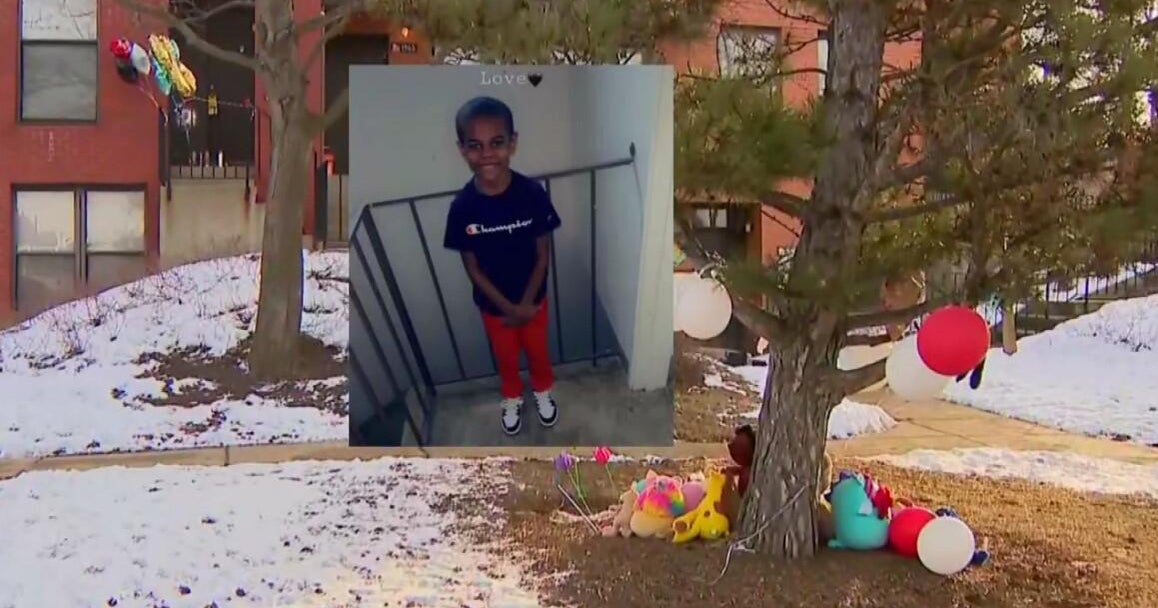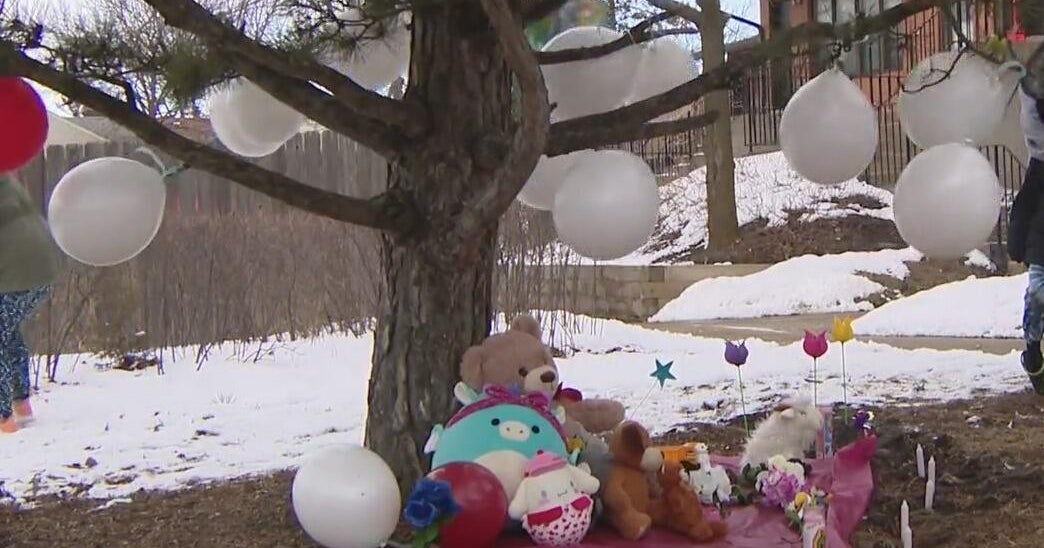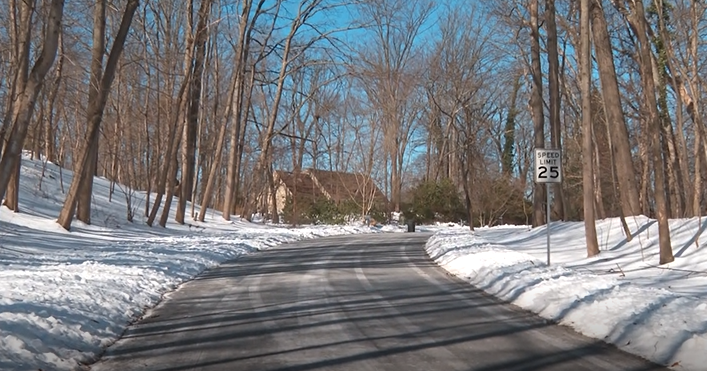Durbin holds U.S. Senate hearing on rise in hate crimes, which ends up turning hostile
WASHINGTON (CBS) -- U.S. Senator Dick Durbin (D-Illinois) held a long-awaited hearing on Capitol Hill Tuesday, aimed at examining the rising number of hate crimes across America.
In the audience was the mother of Wadee Alfayoumi, the 6-year-old Palestinian American boy who was tragically stabbed to death in Plainfield, Illinois, last fall.
Durbin referenced Wadee's case, and Wadee's mother, Hanan Shaheen, was present for the hearing.
"Ms. Shaheen, I'm so sorry for your devastating loss," Durbin said, addressing Wadee's mother in the crowd.
Plainfield landlord Joseph Czuba is accused of stabbing Wadee and his mother last October. The boy was killed.
Czuba told investigators he believed he and his wife "were in danger," because he feared the woman he stabbed "was going to call over her Palestinian friends or family to harm them."
"I also thought about what the 6-year-old boy—I have a 5-year-old granddaughter. I love her like life itself. I cannot imagine this poor little boy answering the door and losing his life because he's Palestinian. My God," Durbin said. "We can't say the things that I've just said in the same sentence without some people saying, 'Well, you've just chosen sides.'"
Many hate crime survivors journeyed to Washington, D.C., for the hearing. But not one Republican Senator acknowledged Shaheen in the crowd or gave their condolences to her on her loss, and the majority of the U.S. senators who participated in the roughly two-and-a-half-hour hearing chose not to focus on hate crimes against the Palestinian community. Instead they shifted focus to Iran, Hamas, foreign policy, and what they said is unchecked antisemitism experienced on college campuses.
"The Democrat Party is terrified by the pro-Hamas wing of their party," said U.S. Sen. Ted Cruz (R-Texas) at one point during the hearing.
The hearing was hostile at times, with one senator questioning the only Arab American expert, Arab American Institute executive director Maya Berry—even accusing her of supporting Hamas and Hezbollah.
As seen in video from the hearing, U.S. Sen. John Kennedy (R-Louisiana) said to Berry, "You support Hamas, do you not?"
"Senator, oddly enough, I'm going to say thank you for that question, because it demonstrates the purpose of our hearing today," Berry said. "Hamas is a foreign terrorist organization that I do not support. But you asking the executive director of the Arab American Institute that question very much puts the focus on the issue of hate in our country."
Kennedy said he accepted Berry's answer, but then went on to ask Berry if she supported Hezbollah and Iran, which she said she did not—while taking issue with Kennedy's line of questioning and saying Hamas, Hezbollah, and Iran were not relevant to the discussion at the hearing. Kennedy accused Berry of not being able to "bring herself to say no" as an answer to his questions.
Kennedy then took issue with Berry's reaction to the decision to cut funding to the United Nations Relief and Works Agency for Palestine Refugees in the Near East, which Kennedy quoted Berry as calling an "incredible moral failure."
"That is absolutely correct, but I would suggest that conversation is about foreign policy," Berry said.
"We did that because nine UNRWA staff members were fired for actually helping Hamas on October 7," Kennedy said.
"I don't believe that that's correct," Berry said, likely referring to a report from the U.N. that found Israel has not provided supporting evidence to corroborate its claims that a significant number of UNRWA employees are members of Hamas.
Kennedy then said: "Let me ask you one more time—you support Hamas, don't you? You support UNWRA and Hamas, don't you?"
"I think it's exceptionally disappointing that you're looking at an Arab American witness before you and saying, 'You support Hamas,'" replied Berry.
Berry said again, twice, that she did not support Hamas, and said she was very clear in her support of UNRWA.
But as she spoke, Kennedy talked over her, saying: "You know what's disappointing to me? You can't bring herself to say you don't support UNRWA, you don't support Hamas, you don't support Hezbollah, and you don't support Iran. You should hide your head in a bag."
Most Senators did not ask Berry questions about the hate crimes data she prepared for the hearing, or about her work researching crimes targeting Arab Americans.
"If we intend to take this seriously, it's not a conversation about Israel and foreign policy," Barry said during the hearing. "It's, what are we doing to understand we must improve this response [to hate crimes]? And that includes no longer dehumanizing Palestinians."
Dr. Dilara Sayeed, president of the Muslim Civic Coalition, traveled from Chicago to D.C. for the hearing with Wadee's mother.
"To attack [Barry] as we saw...in very personal ways was unacceptable," Sayeed said. "You know, we were watching a hate-crimes hearing, and I think hate crimes erupted. It was disturbing and disillusioning."
"They're politicizing and spewing hate rhetoric, and then we wonder why hate crimes have gone up exponentially in the United States in the last 10 years," Sayeed continued.
Sayeed added she was not surprised by some of the hostile questioning.
"For those of us who have been watching how some of these senators have been behaving towards Americans of different backgrounds, it wasn't surprising," Sayeed said. "This is their M.O. This is how they present themselves and treat people in our nation."
This was despite the intent of the hearing, she said, which was titled, "A Threat to Justice Everywhere: Stemming the Tide of Hate Crimes in America," meant to examine hate crimes against all marginalized groups. Several senators mainly focused on antisemitism, including Sen. Lindsey Graham (R-South Carolina), who in his opening marks rejected the idea that this hearing should include any other forms of hate.
"We all want to ensure there's no hate towards any of our communities. We work with allies to ensure we're all standing together, and yet this became about just one community, not the broader community," Sayeed said.
"It really became a very narrow focus. It became about denouncing foreign governments, and Hamas, and Hezbollah, and this was about Americans and hate in our nation."
Even Durbin tried several times to bring the hearing back to its initial purpose.
"Prioritizing which group is being discriminated against the worst - I don't believe that is a valid exercise of our authority here," Durbin said. "What we are trying to do is identify a problem in America that extends beyond the Jewish population, to the Arab population, to the Palestinian population. All of those hate crimes are unacceptable."
After the hearing, the Council on American Islamic Relations condemned Senator Kennedy's comments as anti-Arab bigotry targeting a respected Arab American leader, and said he and other senators "deployed common anti-Arab and Islamophobic stereotypes" during their questioning of Barry.
Sayeed also said the hearing only underscored the types of hate that need to be addressed, and she believes allies will "come together to overcome this hate."
"Our objective was to help our American community understand the issues we are facing. Our objective was to help our American community understand that hate language, that marginalization, that dehumanizing people -- when you don't see them as human -- when you can't have basic decency to each other, it is a direct line to hate crimes," she said, "and you know what they saw today in the hate-crimes hearing? They saw, in action, some of the things we wanted Americans to see."








